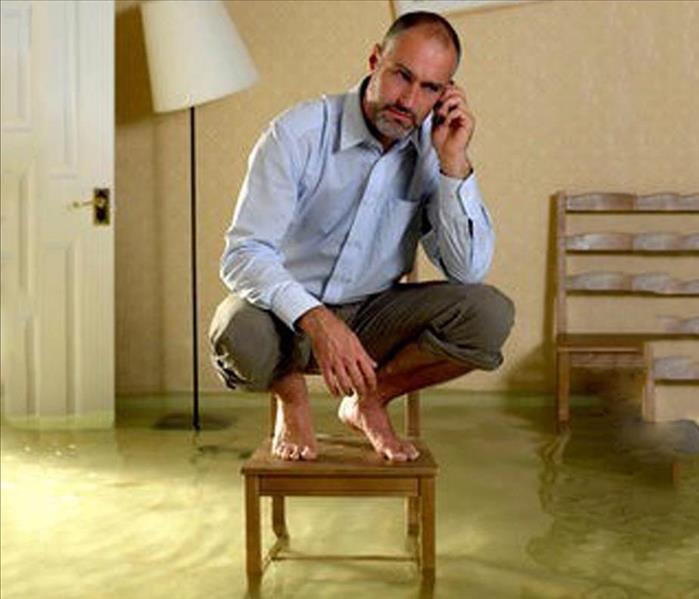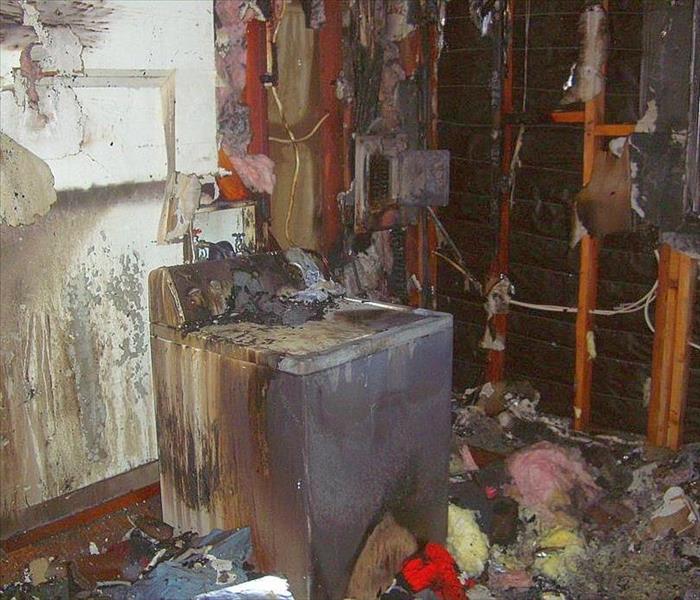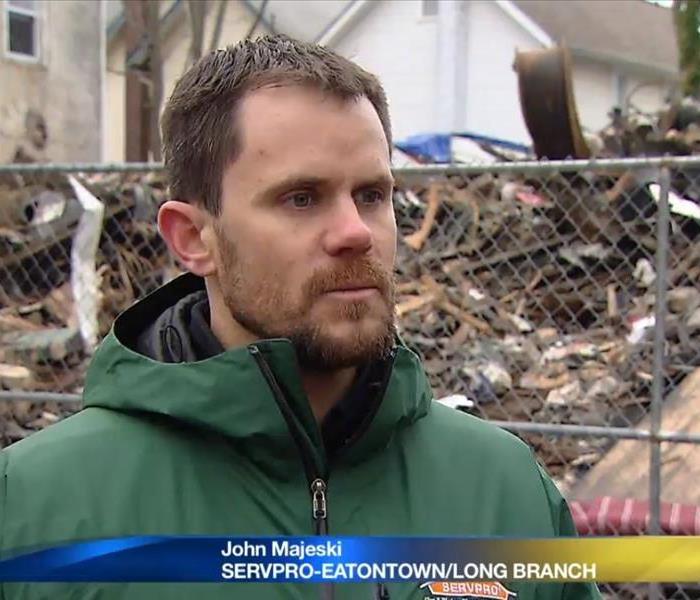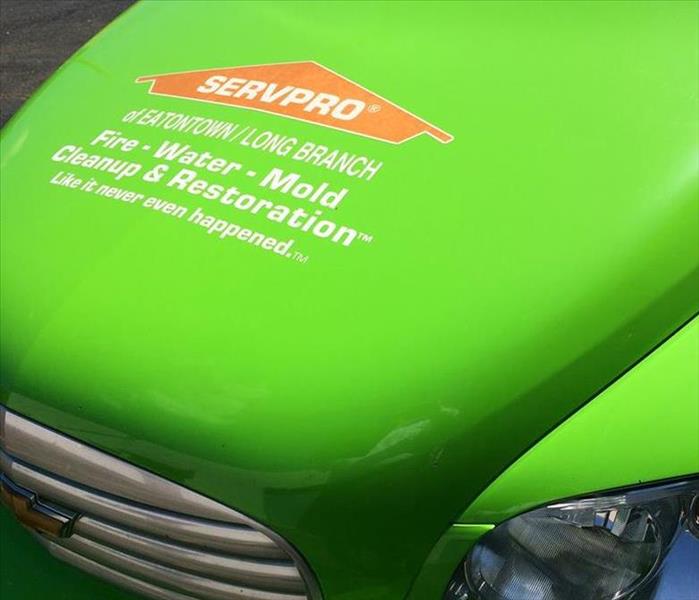5 Tips To Protect Your Home On Winter Vacation
1/13/2016 (Permalink)
Everyone dreams of that warm weather vacation when the winter temperatures drop in NJ. But that dream vacation can turn into a nightmare if your don't prepare your home before you leave.
For peace of mind while you lounge on the beach here is a great article from First Service Residential:
5 Tips Before You Leave On Winter Vacation
If you should come home to an emergency, remember SERVPRO is available 24 hours a day to help. Call us at 732-578-9888
Prepare Your Home in 2016
12/31/2015 (Permalink)
As we say goodbye to 2015, and get set for our resolutions that disappear faster than the ball drops on Times Square, take some time in the coming weeks to think about safety.
How safe is your home? Have you done the proper maintenace needed to minimize your families risk of fires, floods or mold?
In 2013 there were nearly 370,000 home fires in the U.S. At a cost of 6.8 billion dollars in damages. 92% of the appliance fires were caused by the clothes dryer. 32% of those fires were do to lack of cleaning. Here are some dryer safety tips:
*Have your dryer installed and serviced by a professional.
* Do not use the dryer without a lint filter.
* Make sure you clean the lint filter before or after each load of laundry. Remove lint that has collected around the drum.
* Rigid or flexible metal venting material should be used to sustain proper air flow and drying time.
* Make sure the air exhaust vent pipe is not restricted and the outdoor vent flap will open when the dryer is operating. Once a year, or more often if you notice that it is taking longer than normal for your clothes to dry, clean lint out of the vent pipe or have a dryer lint removal service do it for you.
* Keep dryers in good working order. Gas dryers should be inspected by a professional to make sure that the gas line and connection are intact and free of leaks.
* Make sure the right plug and outlet are used and that the machine is connected properly.
* Follow the manufacturer’s operating instructions and don’t overload your dryer.
* Turn the dryer off if you leave home or when you go to bed.
As scary as the statistics for dryer fires sound, they aren't close to being the number one cause of home fires. Two out of every five home fires started in the kitchen, Cooking and cooking equipment account for over 60% of all home fires. They also account for 42% of all fire related injuries in the home.
The peak month of the year for these kitchen related fires is January. The peak time being between 5:00pm and 8:00pm. Unattended cooking was by far the leading cause of these fires.
What you need to know:
- Be on alert! If you are sleepy or have consumed alcohol don’t use the stove or stovetop.
- Stay in the kitchen while you are frying, grilling, boiling or broiling food.
- If you are simmering, baking or roasting food, check it regularly, remain in the kitchen while food is cooking, and use a timer to remind you that you are cooking.
- Keep anything that can catch fire — oven mitts, wooden utensils, food packaging, towels or curtains — away from your stovetop.
Watch this short video for more safety info:
https://www.youtube.com/watch?v=Dm6UMPP2z8I
Make 2016 the year you prepare your home against the risks that are easily avoidable.
10 Ways To Get Your Home Ready For Winter
11/4/2015 (Permalink)
 Are you ready for Winter?
Are you ready for Winter?
Winter can be a devastating time for many unprepared home owners. With freezing temperatures and high utility usage, winter can be expensive and even dangerous.
Here are a few tips to get things in order before the temps drop:
1. Order firewood. Ask friends and neighbors for suggestions on good sources in your community. Because of invasive tree pests like the emerald ash borer, it's now illegal in New York state to move firewood more than 50 miles. Any hardwood, such as oak, maple, beech or elm, will work fine for firewood. You want seasoned firewood that's at least a year old. Ash is the only wood that you can burn "green," right after it's cut down.
2. Clean gutters. If you can't get on a ladder yourself, hire someone. Wait until all the leaves are down, then do it once (unless, of course, they're already overflowing when it rains). So many water-in-the-basement problems are because of clogged gutters.
3. Get water away from the house. Same as above. Even if your gutters are clean, rainwater may be pouring down the leader pipes and emptying right at the corner of your house (and into the basement). You may need to hire someone to dig trenches and install underground drain pipes to pull roof water away from the house. Make sure that all landscaping is pitched away from the house.
4. Seal up masonry. Repair any broken joints or cracks in walkways, steps and stone work. Make sure you have clear, shovel-friendly paths to all doors.
5. Cut down on heating costs. Make your house more energy-efficient by adding insulation, caulking around windows and doors and new storm windows. Maybe you have enough sun and space for solar panels. Repair any cracked or broken windows.
6. Don't rake your leaves. Instead, just leave them where they fall and run them over with a mulching lawn mower. You'll be amazed at how one of these powerful machines can turn a pile of leaves into a million little pieces. Plus, they add valuable organic matter to your lawn. Similarly, leave grass clippings on the lawn.
Love 'Em and Leave 'Em is a Westchester County initiative to encourage leaf mulching and reduce organic yard waste, with a downloadable list of landscapers (Rockland, too) who do this, leleny.org. The cities of Yonkers and New Rochelle have been particularly active with this program.
7. Hire a chimney sweep. We've had two bad winters in a row with another one forecast, so if you haven't had your chimneys cleaned in a while, it's probably time.
How often should you have your chimneys cleaned? "If you have 40 to 50 fires a winter, or about three times a week, you should clean it every year," said Bob Pelaccio of the Mad Hatter Chimney Sweep in Montrose. If it's a couple of times a week, every other year is fine. Only on Sunday? Then every third year will do.
Tedd Cuttitta of New City-based NY Fireplace Designs (and formerly High-Tor Chimney Sweeps) is more of a stickler for an annual checkup. "According to every code in the world, chimneys should be cleaned or inspected on an annual basis," he said. Even if they look fine, there may be internal water damage to the bricks that you can't see.
"I never recommend that any of my clients go beyond every third year, no matter how infrequently they use their chimneys," Cuttitta said.
8. Call in an arborist. Many winter tree catastrophes are preventable. Get a certified arborist to walk around your yard with you to look for rotting trees or damaged or dangling limbs that may come down in the next storm.
9. Get your furnace and boiler inspected. Instead of begging for service when your boiler blows on a dead-cold January night, sign a contract now with a reputable heating company. Many oil and propane suppliers are happy to bring you on board with an annual service contract. It's worth it.
10. Time for a generator? Raise your hand if you spent a week in a dark, cold house after Superstorm Sandy tore through the Northeast. If a big storm is forecast or upon us, no one will have a generator with your name on it. So think long and hard now about whether it's time to finally spring for one. But consider your neighbors, too, and where you're going to put it. Generators are LOUD.
Keep SERVPRO of Eatontown/Long Branch's 24 hour help line number handy: 732-578-9888.
Is My Sump Pump Working? How To Test It.
5/12/2015 (Permalink)
Sump pumps are often installed in a crawlspace or basement below the floor to defend your home against a flood or accumulating ground water. A sump pump also removes collected condensation created by your air conditioner and water from areaway drains, preventing moisture from collecting around the foundation of your home or in the floor of your basement. Test your sump pump periodically to ensure it is working correctly to protect your home against water damage.
1) Find the outside pipe that catches the water as it drains from the pump. Examine the inside the pipe to ensure no dirt or debris is clogging the drain. Remove any debris.
2) Locate the sump pump in your basement or mechanical room. Trace the two electrical cords from the sump pump to the electrical outlet. The pump cord plugs into the back of the float cord plug. Pull the plugs from the outlet, pull the plugs apart, and plug the pump cord only back into the outlet. You should hear the pump running. Unplug the pump and plug the cords back in the wall with the float first, and the pump cord plugged into the back of the float pump.
3) Remove the lid from the sump crock. Slowly pour some water from a 5-gallon bucket into the crock. Observe the sump pump switch. It should turn on and begin to pump water from the crock. Wait until the water pumps from the crock to ensure the pump turns itself off, then slowly pour the remaining water in the crock to ensure the pump turns on again.
4) Replace the sump pump if it fails either test.
SERVPRO of Eatontown/Long Branch Featured On News 12 New Jersey
2/9/2015 (Permalink)
SERVPRO of Eatontown/Long Branch owner, John Majeski speaking with Karla Bardinas of News 12 New Jersey regarding our clean up efforts at the scene of the Ocean Grove fire.
SERVPRO of Eatontown/Long Branch: Faster To Any Disaster
1/22/2015 (Permalink)
The residents of Monmouth County NJ, know that when it comes to any size emergency, SERVPRO of Eatontown/Long Branch can make it "Like It Never Even Happened". Whether it's damage from a fire. Water damage from a broken or frozen pipe, a flooded basement, mold or even a sewage back up, Servrpro of Eatontown/Long Branch's trained technicians can tackle the clean up quickly. We work with all major insurance companies. We'll clean up the mess and get your life back on track after any type of commercial or residential loss. Call 732-578-9888. 24/7





 24/7 Emergency Service
24/7 Emergency Service





